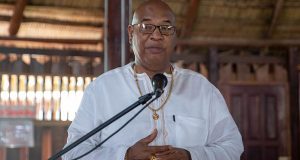PRIDE Financial Columnist
Whether you call it Victoria Day or May-Two-Four, the May Long Weekend symbolizes the beginning of summer for Canadians. Spring cleaning is done, taxes are filed, the white pants are out and thoughts of family summer vacation are starting to bloom.
Family vacations create memories that last a lifetime – but they can also teach kids great money lessons for their future. Involving kids in the planning of your vacation will not only help them appreciate the overall benefits of travel, but also gives them the opportunity to learn about budgeting, saving and money management in a real context.
The first step in planning the family vacation is creating a budget for the trip:
- Be realistic about what you can afford. We all want to experience those amazing, lap-of-luxury vacations, but choosing a trip you can’t afford will likely add more stress to your life. After all what’s the point of taking time to relax if you’ll be paying for it for months to come? Be prepared to discuss with your kids why limits exist.
- Budget: After these limits are discussed, work with kids to create a detailed budget for accommodations, transportation, food, special event tickets and souvenirs. Have them look online for a travel calculator, like the one at practicalmoneyskills.ca to help plan your spending.
 Technology:
Technology:
If you have trouble tearing your kids away from their smartphones, you might be in luck. The technology they’re using can be very effective in budgeting, pricing and planning travel. The ability to research anything and everything at the drop of a hat can be an asset for the non-technology savvy baby boomer.
Once the budget is set, point the kids to the internet to research as much information as they can on potential locations and costs. Make sure they know the value of shopping around. There are a wealth of sites that make it easy to compare prices when booking airlines, hotels rental cars and tourist attractions. It’s a savvy traveler’s world – make sure your kids know how to take advantage of deals.
Consider alternative lodging. Do some online research for companies like Airbnb, a service that allows you to rent unoccupied living place in other people’s homes, which are increasingly popular – and in many cases cheaper. During the trip have them utilize technology to help you check-in online for flights and hotels as well as organize itineraries.
Saving and Trade-offs:
Putting the kids in charge of travel planning gives them an opportunity to learn about trade-offs. For example, a cross-country trip that involves large transportation costs can provide a valuable lesson in finding more affordable rest-stops or restaurants to combat the high price of transportation. Children can also learn how traveling in-season versus out-of-season can tighten the budget. Many peak summer destinations become significantly more affordable if a family chooses to travel over the winter holidays.
Trip planning can teach an important lesson in spending and saving. Encourage your kids to put aside a portion of their allowance to buy souvenirs or make other purchases along the way. To get them started, help them save for their goal using online calculators such as the one on practicalmoneyskills.ca.
Finally, once everyone is home, parents and kids might find it useful to discuss how the vacation went and what improvements can be made next time. Involving your children in family vacation planning will allow them to see the world and practice good budgeting, saving and spending habits along the way.
Carla Hindman is Director of Financial Education for Visa Canada and directs its Practical Money Skills program.
 Pride News Canada's Leader In African Canadian & Caribbean News, Views & Lifestyle
Pride News Canada's Leader In African Canadian & Caribbean News, Views & Lifestyle





